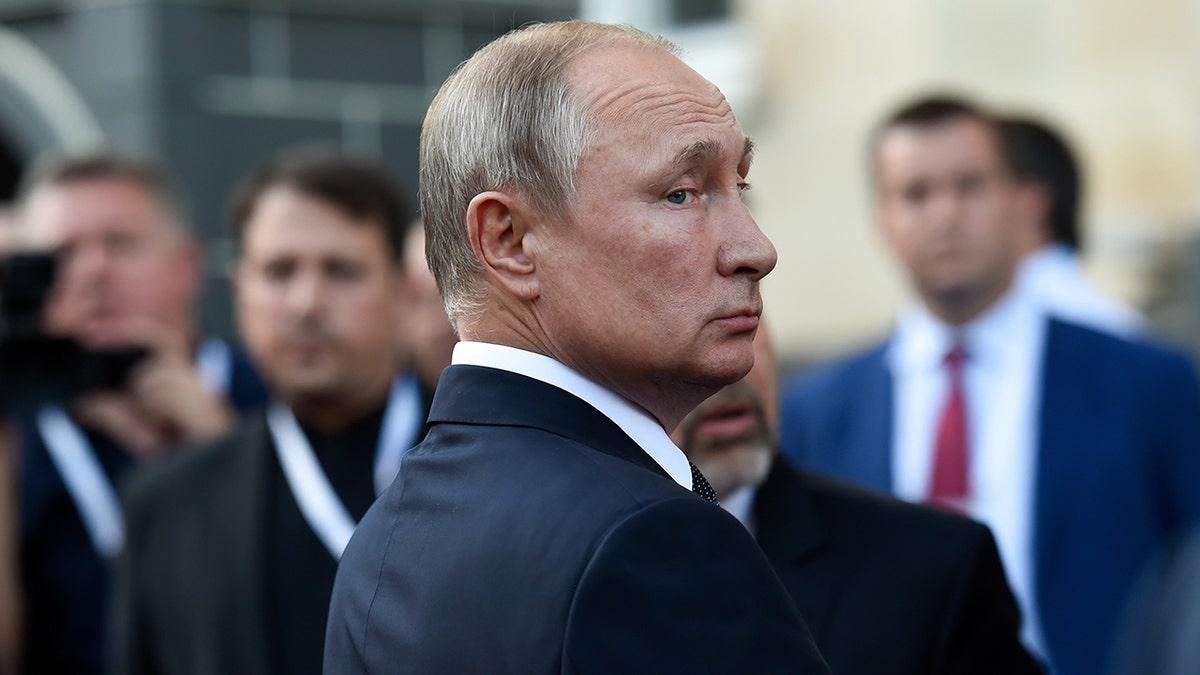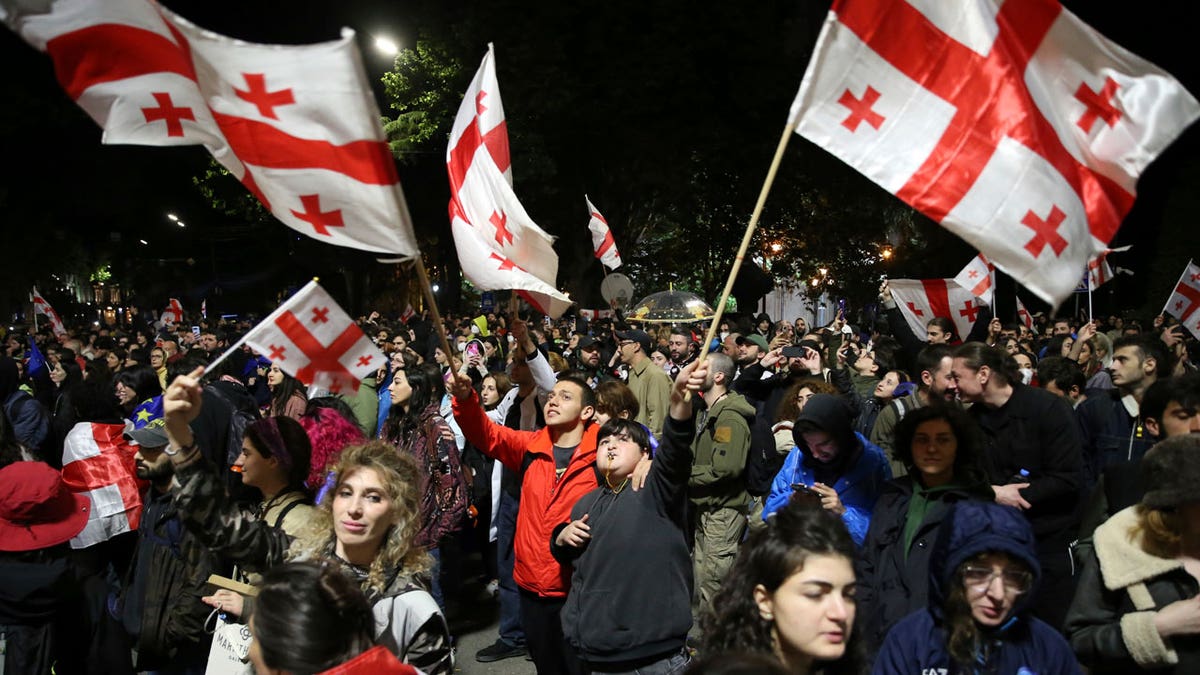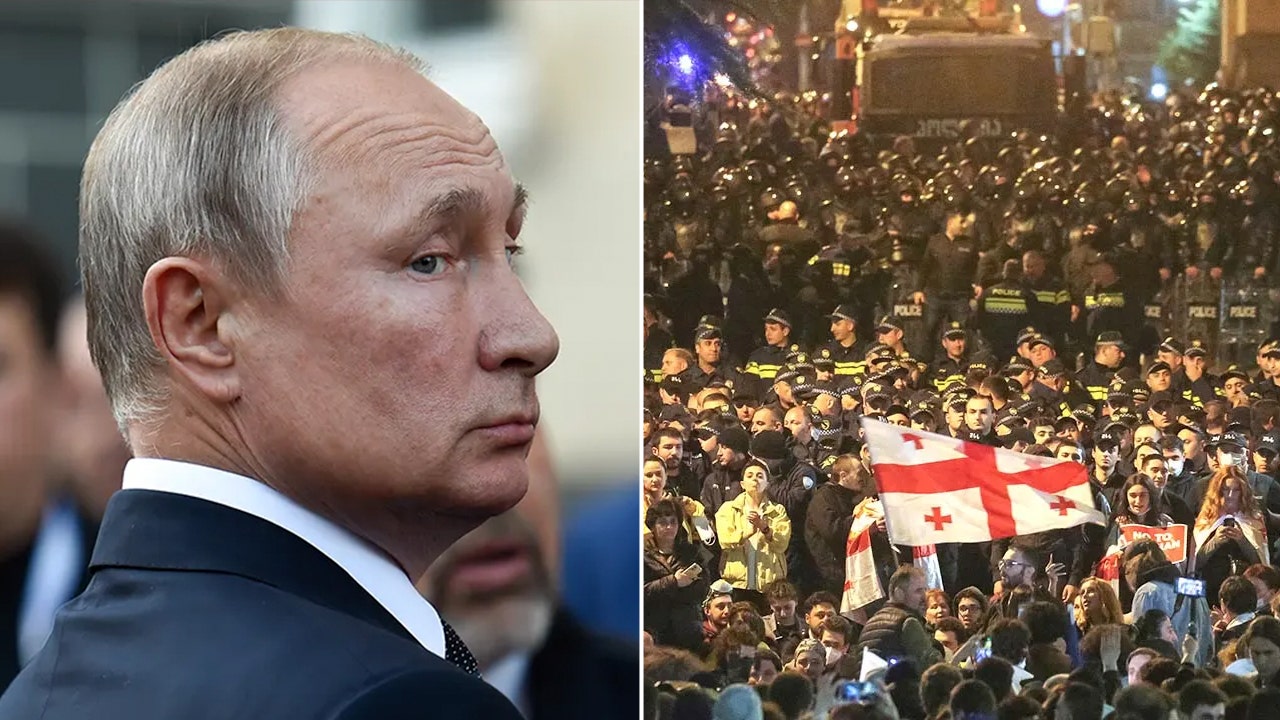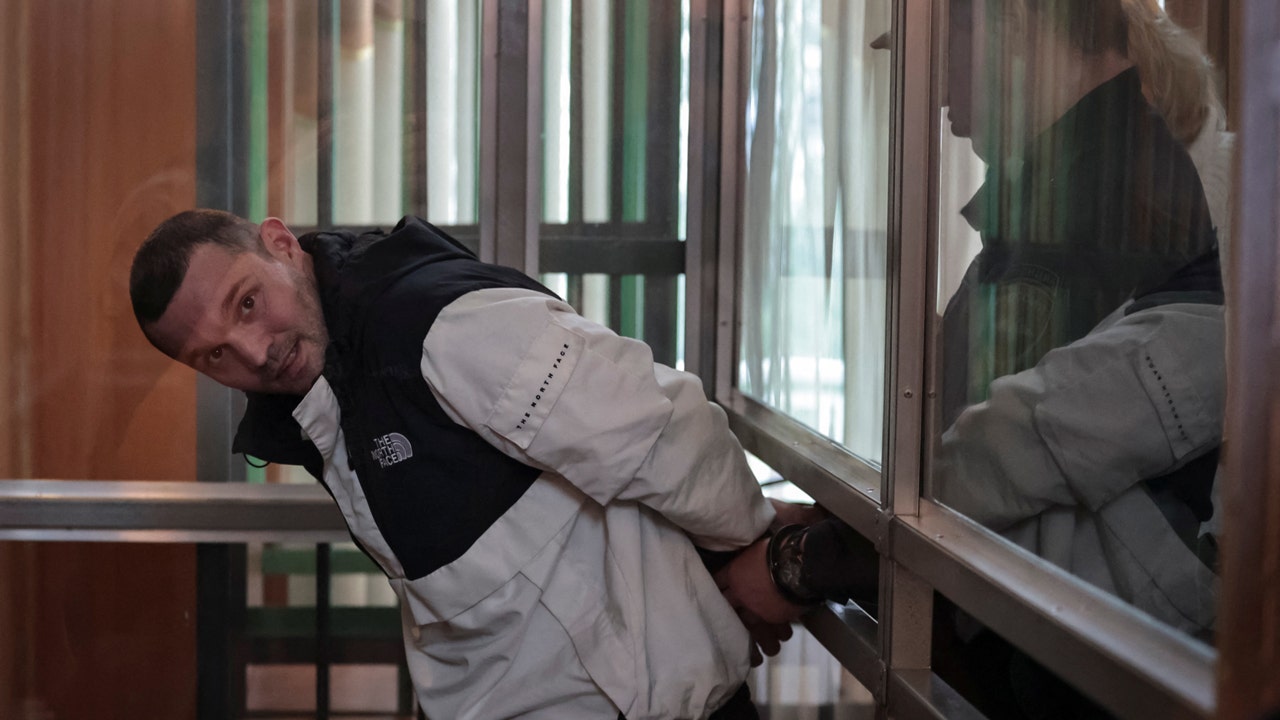The government of Georgia wants to put the country back in time to its old Soviet Union days, and it signed a controversial new “foreign agents” law that many believe will end Georgia’s young democracy.
Tens of thousands of angry protesters took to the streets of Tbilisi and other cities across Georgia to voice opposition to the new law and were met with a heavy response from Georgian riot police. Estimates vary, but nearly 200,000 people were out in the street on Saturday, a staggering show of force in a country of only 3.7 million people.
The capitol has been on edge as angry protesters remain outside the parliament building banging against barricades and smashing barriers that surround the Parliament. Violent clashes between police and protesters continue.
FORMER SOVIET REPUBLIC OF GEORGIA SEES RULING PARTY CAVE TO MASSIVE STREET PROTESTS AS IT SEEKS CLOSER EU TIES

Russian President Vladimir Putin attends a meeting of the Supreme Eurasian Economic Council in Yerevan, Armenia. (Shutterstock)
In a show of bipartisan support for Georgia’s struggle for democracy, a group of senators led by Sen. Jeanne Shaheen, D-NH., and Ranking Member of the U.S. Senate Foreign Relations Committee Sen. Jim Risch, R-Idaho, condemned the law in a joint statement, calling it “a dark day for Georgian democracy.”
The law requires citizens, non-governmental organizations, media outlets and other civil society organizations that receive over 20% in funding from abroad to register as a foreign agent with the Justice Ministry. The law will impose significant burdens and penalties that many human rights organizations believe will marginalize and discredit opposition voices and have a chilling effect on free speech.

People take part in a protest against a draft bill on “foreign agents” in Tbilisi, Georgia, on April 15, 2024. (REUTERS/Irakli Gedenidze)
It “threatens fundamental rights in the country,” according to Human Rights Watch.
The proponents of the law claim it will eliminate foreign interference in Georgia’s domestic affairs. Its detractors say it is modeled on a Russian piece of legislation that is also used to crack down on dissent.
“The law will allow them to start a witch hunt against all who do not share their position and oligarchic way of governance,” former Georgia Minister of Defense Tinatin Khidasheli told Fox News Digital.
Natia Seskuria, an associate fellow at the Royal United Services Institute and who is on the ground in Tbilisi, told Fox News Digital that the law will threaten Georgia’s European aspirations and democratic development.
“It serves as a powerful tool for the government to crack down on civil liberties and freedom of speech,” she said.

Law enforcement officers block a street during a protest against a draft bill on “foreign agents” in Tbilisi, Georgia, on April 15, 2024. (REUTERS/Irakli Gedenidze)
ZELENSKYY WARNS RUSSIA WANTS TO CAUSE ‘EXPLOSION’ IN THE BALKANS
Seskuria said that many rightly feel the government will weaponize the law and silence dissent. The law’s provisions are antithetical to EU values, and it is clear that Georgia will be unable to advance on its European integration path while the law is on the books.
“The law would serve Russian interests who want to see Georgia move away from Western allies,” Seskuria added.
The Georgian Dream ruling party and the bill’s sponsors made clear in public statements, according to Human Rights Watch, that the law will target critics of the government, the LGBT community and almost any dissent regarded as unacceptable by the ruling government.

This photo taken from a video released by Mtavari Channel on Tuesday, May 14, 2024, shows Georgian lawmakers fighting during a parliament session in Tbilisi, Georgia. Georgia’s Parliament on Tuesday began the third and final reading of a divisive bill that sparked weeks of mass protests, with critics seeing it as a threat to democratic freedoms and the country’s aspirations to join the European Union. (Mtavari Channel via AP)
The passage comes after weeks of heated debate within the Georgian Parliament, with physical clashes taking place between supporters and opponents of the law. Civil society has been active and mobilizing in opposition to the bill for weeks while it was being debated. The law eventually passed the legislature by an overwhelming 84 votes in favor and only 30 votes against.
RUSSIAN INFLUENCE PEDDLING ADDS TO FEARS AFTER ELECTION OF UNTESTED PRESIDENT IN EUROPEAN NATION
Georgian President Salome Zourabichvili, who is staunchly pro-EU and pro-West, vowed to veto the law, but the Parliament can override her veto with a simple majority, neutralizing the effectively symbolic president and assuring it will become law.
Parliament attempted to pass an identical law in 2023 but was met with equally large mass protests, and lawmakers eventually caved to public sentiment, and withdrew the bill.
Since declaring independence from the Soviet Union in 1991, Georgians have strong aspirations to join the EU, with polls showing up to 83% of Georgians in support. Tbilisi formally applied for EU membership in March 2022, shortly after Russia’s invasion of Ukraine, and was granted candidate status in December 2023. While pro-European sentiment remains strong among the people, the ruling party is seen by many as sympathetic towards Russia and a roadblock to the Georgian people’s ambitions to join the EU.

Demonstrators waving Georgian national flags gather in front of the Parliament building during an opposition protest against “the Russian law” in the center of Tbilisi, Georgia, early Monday, May 13, 2024. Daily protests are continuing against a proposed bill that critics say would stifle media freedom and obstruct the country’s bid to join the European Union. (AP Photo/Zurab Tsertsvadze)
“Russia’s war in Ukraine is not about Ukraine only. Putin is an idealogue who wants to shatter the rules-based order, and he has a long-term vision, which we now witness in Georgia,” Ivana Stradner, research fellow at the Foundation for the Defense of Democracies, told Fox News Digital.
Stradner said Putin’s proxies are watching Georgia and making calculated moves, including the Serbian entity within Bosnia and Herzegovina, where a similar law on foreign agents will be discussed in parliament next week.
“It will put the West on the defensive and further erode democracy. This is the result of Western appeasement,” Stradner warned.
CLICK HERE TO GET THE FOX NEWS APP
“Make no mistake: if Russia via its proxies win in Georgia, next on Putin’s authoritarian menu are Moldova and the Balkans,” Stradner added.
Despite Georgia’s long odds, former Minister of Defense Khidasheli echoes the sentiment in the streets and will remain optimistic.
“We will win this fight and get Georgia back on its EU and NATO path, but it will be a long and difficult fight,” she said.






